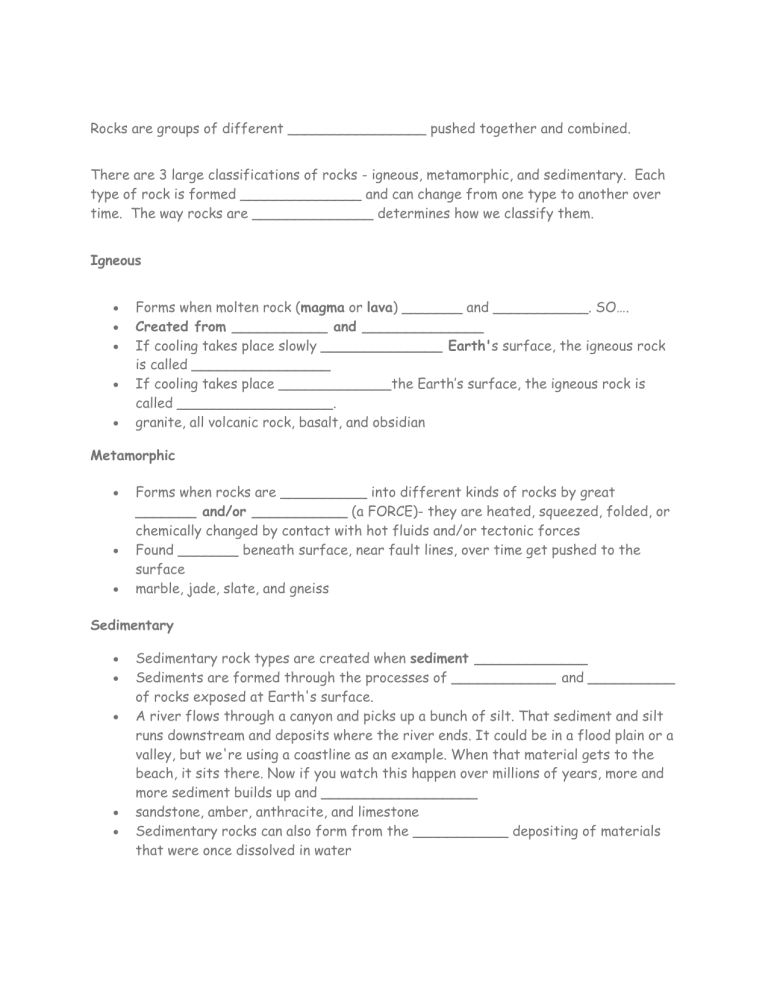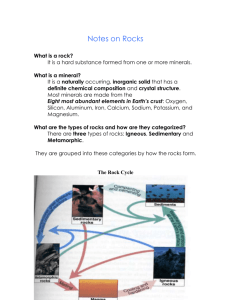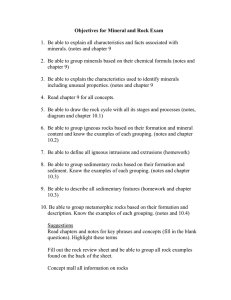
Rocks are groups of different ________________ pushed together and combined. There are 3 large classifications of rocks - igneous, metamorphic, and sedimentary. Each type of rock is formed ______________ and can change from one type to another over time. The way rocks are ______________ determines how we classify them. Igneous Forms when molten rock (magma or lava) _______ and ___________. SO…. Created from ___________ and ______________ If cooling takes place slowly ______________ Earth's surface, the igneous rock is called ________________ If cooling takes place _____________the Earth’s surface, the igneous rock is called __________________. granite, all volcanic rock, basalt, and obsidian Metamorphic Forms when rocks are __________ into different kinds of rocks by great _______ and/or ___________ (a FORCE)- they are heated, squeezed, folded, or chemically changed by contact with hot fluids and/or tectonic forces Found _______ beneath surface, near fault lines, over time get pushed to the surface marble, jade, slate, and gneiss Sedimentary Sedimentary rock types are created when sediment _____________ Sediments are formed through the processes of ____________ and __________ of rocks exposed at Earth's surface. A river flows through a canyon and picks up a bunch of silt. That sediment and silt runs downstream and deposits where the river ends. It could be in a flood plain or a valley, but we're using a coastline as an example. When that material gets to the beach, it sits there. Now if you watch this happen over millions of years, more and more sediment builds up and __________________ sandstone, amber, anthracite, and limestone Sedimentary rocks can also form from the ___________ depositing of materials that were once dissolved in water Weathering- the _________________ down of rocks, soil, and minerals through ___________________ with the Earth's atmosphere, water, and biological organisms. (no movement) Erosion- the ___________ of surface processes (such as water flow or wind) that removes soil, rock, or dissolved material from one location on the Earth's crust, and then transports it to another location (___________________) The Rock Cycle is an ongoing process:


